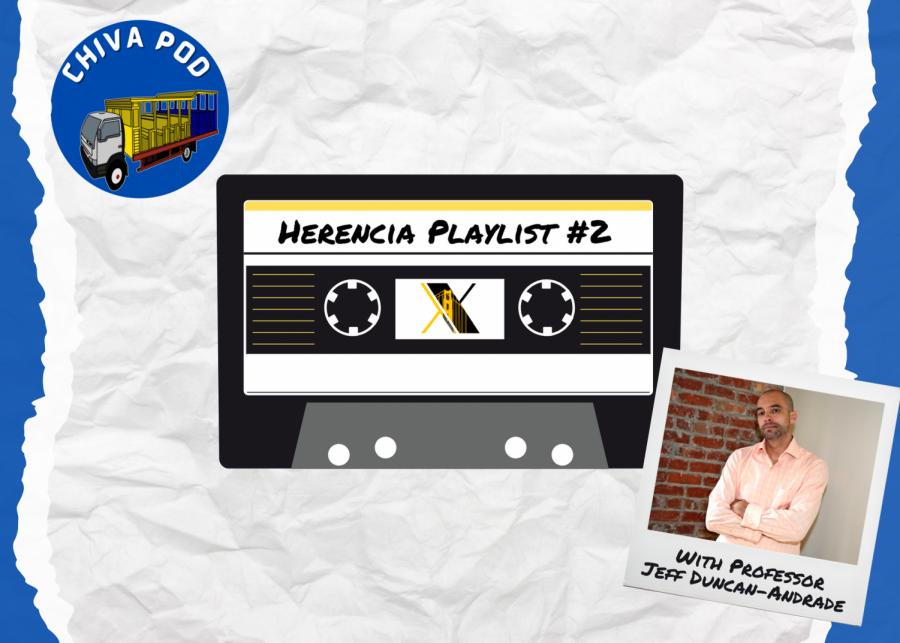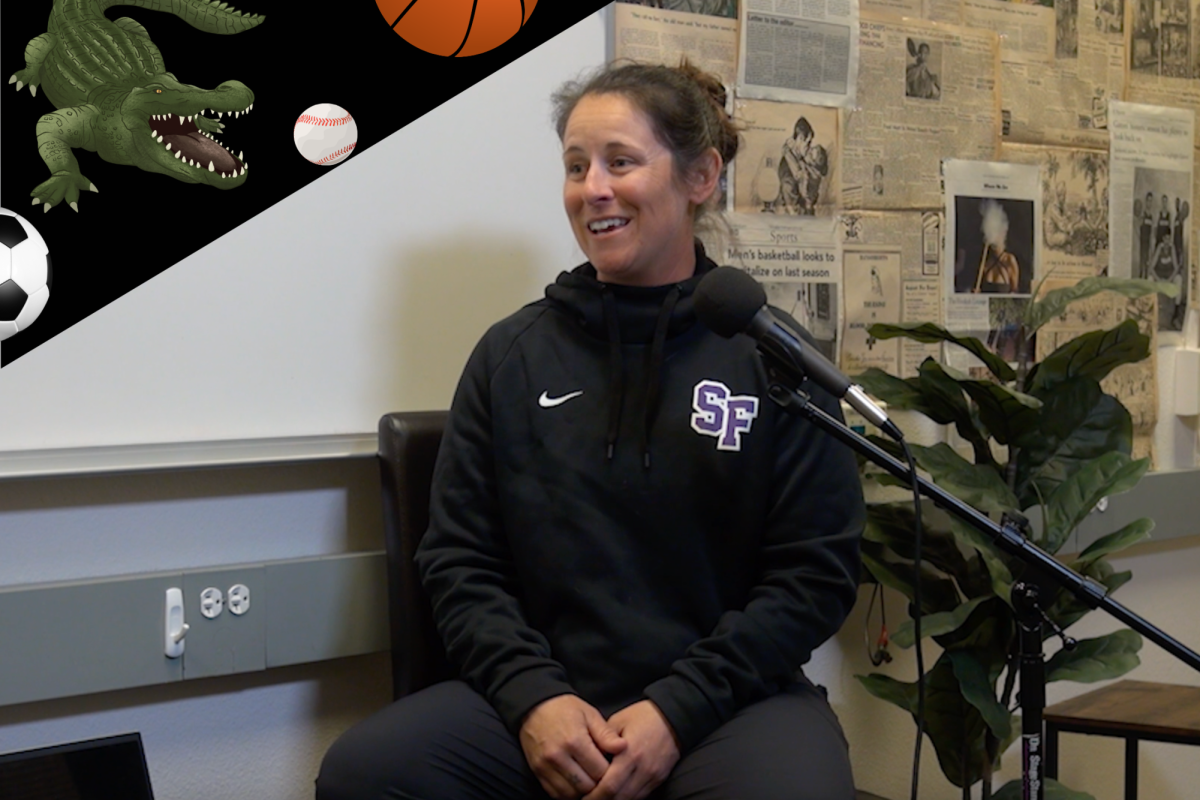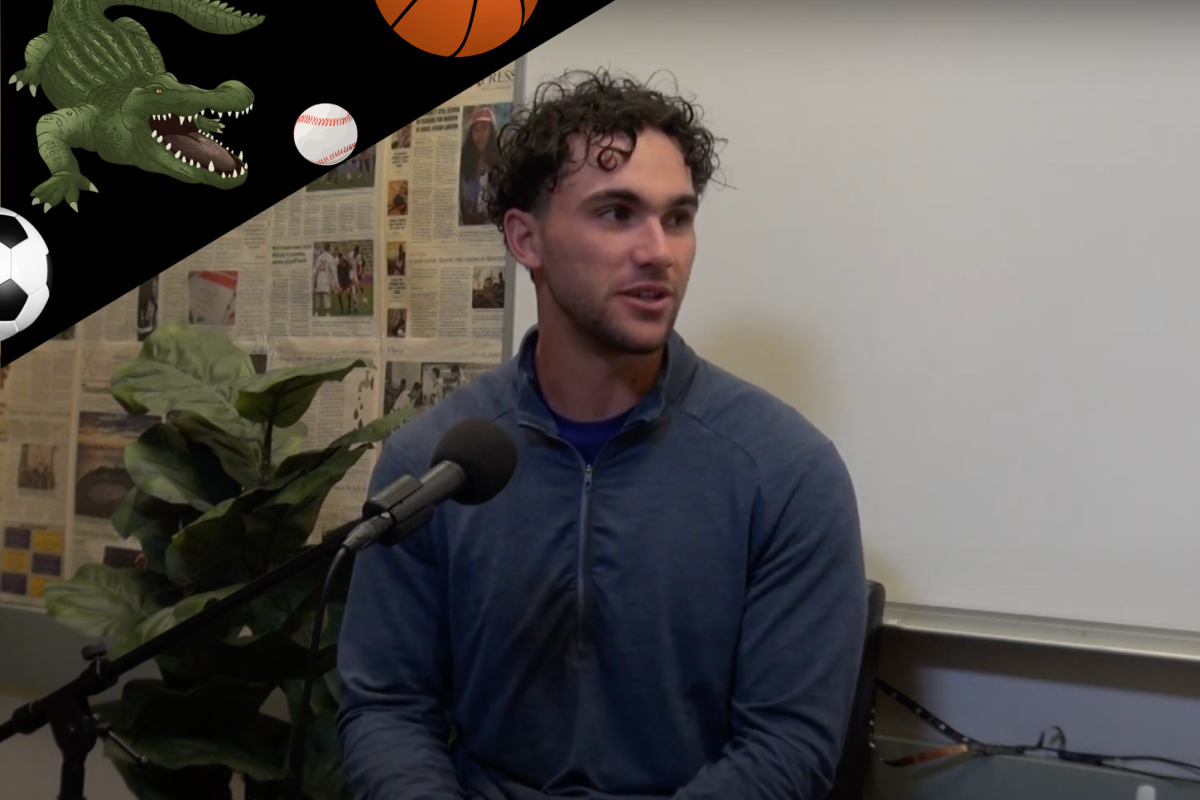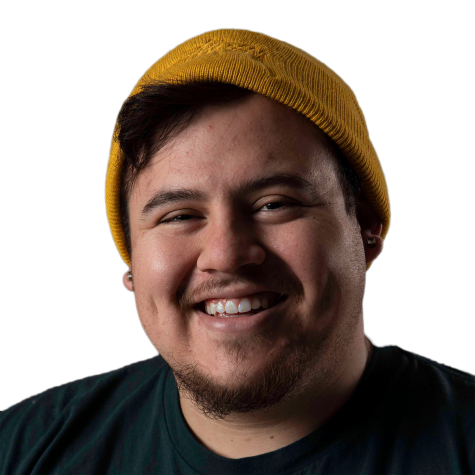Chiva Pod
Seb:
Bienvenidos a Chiva Pod, I’m your host Sebastian Miño-Bucheli.
Welcome to the second episode of the Herencia playlist. If you’re listening to this episode right here for the first time, Chiva Pod is launching this series by asking Latino/a Studies professors, what their playlist for this month looks like? Is it a reflection of their identity, their community, or a reflection of lesser known genres they would love to teach about?
If this is your first time listening to this series, stick around! Listen to what your professor has to say
Anyway…
Our first launch episode with Profesora Katynka Martinez was amazing! My parents wanted to be interviewed and asked me what my playlist would look like. Who knows, maybe I’ll drop mine too.
More importantly, I want to hear from you, what are your core songs for this month?
We’re going to skip the news headlines and go straight to the main story. ¿Listo?
Main Story
Seb:
For this episode, I spoke to Professor Jeff Duncan-Andrade. He’s a professor in the Latino/a Studies Department and also teaches classes for Race & Resistance Studies at SF State. What also makes him standout is that he’s also the Founder of Roses in Concrete Community School and also the Community Responsive Education program in East Oakland.
To make things more interesting, I asked Professor Duncan-Andrade for only 12 songs.
When you listen to his community playlist, he recommends using the shuffle option.
Here’s his breakdown of his playlist.
Professor Jeff Duncan-Andrade
I actually reached out to a lot of my homies, just to get their input on and so it was beautiful. The responses they gave and they were like juiced to like, share, all, all their choices with me. What’s funny is that it complicated my life because then, they added all these folks. I was like “Oh damn like I’ve never heard of that before,” then I go and listen to it, like, that’s, that’s, that’s nice I might have to put that on the list.
Professor Jeff Duncan-Andrade
And so I’ve got kind of like a cross section, you know, from, Jenni Rivera to the Afro Cuban All-Stars, you know, bringing in some of you know our Caribbean flavor too… Yeah, to Carlos Santana and then I threw some Tupac in there because I think a lot of folks don’t know that Tupac was named after Tupac Amaru, the last Incan King. Right. So I think they might think of Tupac as representative of just the black community. And so I wanted to put some of his work in there too, as a way to kind of store it all together right and make some caldo, this is like representative of just how beautiful our people are in our communities.
Professor Jeff Duncan-Andrade
When we were in zoom classes I had my students. send me a song. and then I would make a playlist for the class. We would be writing reflections and if we weren’t talking, I would play their playlist. And, you know, almost every year, Bad Bunny would make the playlist.
Professor Jeff Duncan-Andrade
The song I think is called La Noche de Anoche.
Professor Jeff Duncan-Andrade
I appreciate that song in part because he’s, you know, he’s Puerto Rican right so we’re getting some of the Caribbean in there. And some of the African traditions right around the drum. That is such a big part of both African and not the next culture by historically. And so, and then you’ve got these elements of hip hop right which are, you know, you know, the origins, they’re sort of born out of the streets right on the east coast where you did have a lot of a lot of black, Brown, collaboration, and kind of the sinking up and mashing together, of our different culturas to make this totally new style of music that you know that Chuck D once said about hip hop that it was “CNN for black and brown.”
–La Noche de Anoche by Bad Bunny and Rosalía plays in the background.
Professor Jeff Duncan-Andrade
my mother who’s 92 As far back as I can remember she would always say, take the best of the rest. And so I kind of feel like that’s what he did is like yeah we have this really traumatic historical often unacknowledged colonial relationship with Spain, and yet he’s able to sort of borrow from some of the best of their culture and weave it into his work in a way, and I feel like that’s what our community does so beautifully.
Professor Jeff Duncan-Andrade
Sacar la Voz, I’m not sure how you say her last name. Maybe Ana Tijoux?
Professor Jeff Duncan-Andrade
Part of what draws me to a song right is you have to get like the trifecta. So you’ve got to have a dope beat or rhythm, your lyrics have to be on point. Although there might be a couple of songs in here where the lyrics might be a little “loose”, right, maybe it may be a little a little heavy on the amor side. I’m a romantic at heart. I tend to gravitate there sometimes.
Professor Jeff Duncan-Andrade
I feel like she does and that song, Like theirs. It’s a call to action, you know, to stop being silent, and to understand the strength in our individual voices, and in our collective voice. And for me, you know, as somebody who has spent the majority of his adult life working with young people who are so frequently silenced and punished, frankly, for, for trying to find their voice, that, That song really resonates with me, you know, across, across all groups that are, you know, vulnerable and wounded in our society,
Seb: We’re gonna take a quick break –
Break
Support the publication’s work by, by following Golden Gate Xpress @ GGXNews and visiting the student publication website: https://goldengatexpress.org
We’re going to go back to Professora Jeff Duncan-Andrade. You can listen to his playlist on Spotify after listening to the episode.
break ends –
Professor Jeff Duncan-Andrade
So in that theme I’ll add Rebel Diaz and the song “Which Side Are You On?”, which is, you know the one of the, you know, better known kind of civil rights, write songs that, that he grabs and in the way in which I think a lot of modern artists generally do but particularly folks in hip hop right will sample from not just from, you know other beats and music but will sample from important moments in history, whether it’s, you know speeches or chart chats like this one.
Which Side Are You On? by Rebel Diaz plays
Professor Jeff Duncan-Andrade
It’s almost like a rhetorical question, in that it’s saying that there are signs. And, and you need to know which side you’re on, because to not know, is to side with the powerful, you know, by already I think, I think, said that once, and, and that that has influenced how I teach, right, the idea that we can develop schools and curriculum and pedagogy in our schools. That is, that is just false. You know, everything we choose to teach to children is by definition of the choice, a political decision, because we are deciding what’s important for them to know.
Professor Jeff Duncan-Andrade
That’s about as punk as it gets. I was actually gonna jump next to Olmeca. And I don’t, I don’t think people appreciate all Olmeca.
Professor Jeff Duncan-Andrade
so I came across his work, when I was down at UCLA for a few years, not getting sort of pulled into the mainstream, particularly as hip hop, really kind of a fork in the road between hip hop and rap. Right. And I think he stayed true to a lot of them, at least the pieces that I’ve heard from him stay true to a lot of that kind of original intent and purpose. And, and cultural foundations of hip hop. I actually haven’t thought about him in a while, and one of the homies that I asked for some, some thoughts on on what songs to put on there and Olmeca didn’t come up right away and then I said, Look, I want to I want at least one song that takes on the terms spanic, just as a way because if folks are gonna be listening to this playlist as a result of the Hispanic quote unquote Hispanic heritage. Then I want them to be thinking critically about that. The existence of that, right, and why it’s called that. And so I couldn’t actually find one so if anybody listening to this podcast knows a good song that really takes that term on share, please, but I end up going with omega and it is a song called Define.
–Define by Olmeca plays
Professor Jeff Duncan Andrade
The last one I’m going to do is a song that my homie and colleague, Yesica, she did her dissertation and is either done with a book or completing a book right now in January. And so I asked her, you know who what’s the Jenni Rivera song, I should have and of course she sends me like five and then says hey can we also add Cardi B, and these other folks, so we’ll just stick to Jenni Rivera that right now and the first song she chose Las Malandrinas. Las Malandrinas. I asked her why like why, why would that be the song, especially like you know she spent, you know, years studying Jenni Rivera and her impact in the community and in her answer was, I’m quoting her here, she says,” because it captures the pleasures and subcultures of many working class Mexican girls.” And, and she added, “madres solteras”, because that song captures the stories of many single mothers. And I think that one of the reasons why I wanted to include Jenni that is because I didn’t know much about her until I met yes he got, and just listening to her talk about the work and the way in which Jenni Rivera’s life and the way in which she chose to use her art form to lift up the voices of girls and, and young women, and, and, and grown women in in elements of our culture that are machismo, when all of our people, particularly those that are most vulnerable are not permitted. But supported to, to define themselves, and to be to make contributions on their own terms. And I think Jenni Rivera did that, you know, like she changed so much of the music scene. Because she chose to do art on her own terms.









